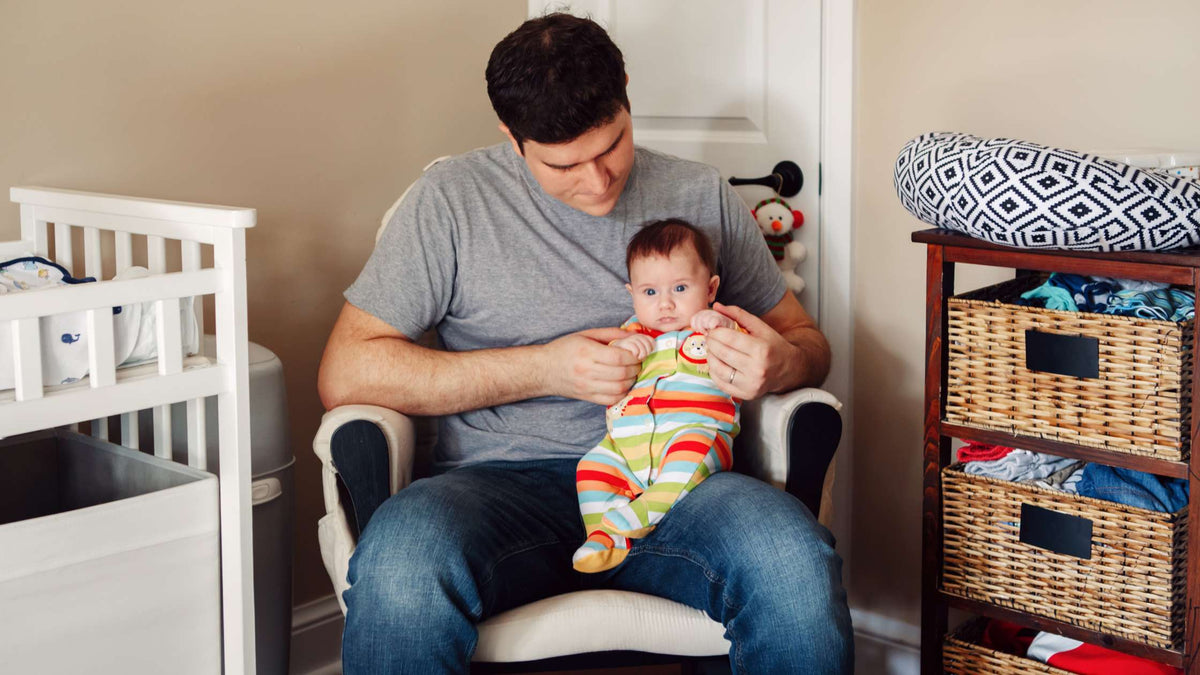
4-Month Baby Sleep Progression: What It Really Means for Baby Sleep
Time to read 2 min
Time to read 2 min
Guest Expert: Liz Harden, MPH, founder of Little Dipper Sleep
Liz reframes the commonly misunderstood 4-month baby sleep regression—and explains why it’s really a progression worth celebrating.
If baby sleep has changed at your house and your once peacefully sleeping baby is suddenly waking up more at night or taking shorter naps, you’re not alone—and you’re not doing anything wrong. In this episode of the Nurtured Nest Podcast, pediatric sleep consultant Liz Harden helps reframe what many parents dread: the “4-month sleep regression.”
In truth, it’s not a regression at all. Liz guides us through the science and strategy behind what’s more accurately called a sleep progression —a developmental leap that signals brain maturation, not baby sleep failure.
In the episode, Liz meets with a real parent navigating 4-month sleep disruption. Together, they explore baby sleep--what’s working, what’s not, and how to adapt gently without pressure or guilt.
From troubleshooting nap resistance to navigating sleep associations, Liz’s approach to baby sleep is warm, collaborative, and completely doable. You’ll leave the episode with a better understanding of your baby—and your role as their guide through these changes.
Babies are born with two baby sleep stages—active and quiet. Around 3 to 5 months of age, they begin transitioning toward adult-like sleep cycles. This shift introduces lighter sleep stages (like REM), making babies more aware of their surroundings when they stir between cycles.
That means what used to be a long, peaceful stretch of baby sleep may now look like:
While this can feel frustrating or even alarming to caregivers, it’s actually a sign of progress . Your baby’s brain is growing in big ways. They’re building new connections, learning to self-regulate, and becoming more attuned to the world around them—even while they sleep.
This stage often catches families off guard because it coincides with other big changes: more alertness, rolling over, new feeding rhythms, and shifting wake windows. Liz reminds parents that sleep isn’t static—baby sleep evolves just like other milestones.
Rather than trying to “fix” your baby’s sleep, this is the perfect moment to support their growing brain with gentle structure and sleep-friendly habits.
At four months, babies generally do best with wake windows of 75–120 minutes. Watching for sleepy cues (rubbing eyes, zoning out, fussing) can help you time naps before overtiredness sets in.
Keep bedtime routines consistent and calming: think dim lights, white noise, a favorite lullaby, and a short sequence of soothing steps. Predictability helps babies feel safe as they navigate new baby sleep patterns.
Self-soothing is a skill that develops over time. You can support it by pausing briefly before picking your baby up, or by offering comfort in the crib without removing them right away. It’s okay to take baby steps (pun intended!).
Night feedings are still appropriate at this age. Some babies may need 1–2 overnight feeds. If hunger is ruled out, try soothing without feeding—rocking, patting, or using a pacifier.